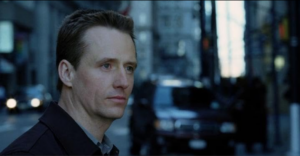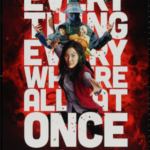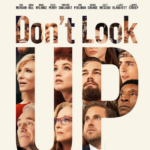The Forgotten (2004)
Today’s guest review is by Justin Petrisek.
How many Hollywood movies can you think of where a mother is front and center as the hero? Perhaps a few come to mind, but we all know Hollywood has a long and shameful history when it comes to women in the movies – not only in its treatment of the actresses who play them but also in the unfortunate lack of strong female characters and storylines.
For every A Quiet Place, The Terminator, or The Blind Side, there seem to be dozens if not hundreds of movies that either downplay their female leads or are totally absent strong female characters. However, that’s not something that can be said about the 2004 thriller The Forgotten.
The story revolves around Telly Paretta (Julianne Moore), a mother who believes that her son Sam died in a plane crash over a year ago. She is still grieving and understandably so. Telly talks about Sam to her psychiatrist Dr. Munce (Gary Sinise), visits Sam’s old room to be near his things or smell his clothes, and watches old home videos and reminisces over photo albums. For Telly, Sam is still very real, still close, and not just a memory.
But returning home one day, she finds Sam’s room changed and his things missing. Telly confronts her husband Jim (Anthony Edwards), accusing him of trying to forget and move on from their son. The problem, though, is not a father trying to move on from his son’s death. The problem, according to Jim, is that Sam never grew up. Having been pregnant and miscarried, Telly has apparently imagined Sam’s life as part of a delusional fantasy, filling her mind with false images and memories. Forced to question her motherhood, she begins to question her sanity as well.
Not only is a mother front and center in this movie, but the question of motherhood becomes the axis around which the entire film revolves. Telly must search for evidence to prove that Sam existed and that she really was a mother, even when those around her say he didn’t exist and mysterious figures are actively trying to stop her search. Sam’s presence may have been removed from the photo albums and videos she once clung to, but she still holds onto memories of him—memories that she is certain are real and infallible.
Science fiction films often become an avenue through which we warn society to be careful, to be mindful of the harm that certain technologies could cause or that certain decisions could manifest. We want to caution society against doing irrevocable damage. So, what exactly is a film like The Forgotten trying to say about our culture?
Is the government really colluding with forces that want us to forget the importance or even the existence of our mothers? Is society at risk of erasing motherhood? Or is motherhood the last line of defense, one of the essential realities that makes us human, and the one part of ourselves that we cannot forget?
SPOILER ALERT: The last few paragraphs cannot help but spoil the end of the movie. So, if you want to experience for yourself what Telly discovers in her search, or whether or not Sam was real, watch the movie and then come back to finish this article later.
The bond between mother and child is the entire point of the movie. Or as the mysterious Friendly Man puts it toward the end of the film: “The connection between a mother and her child is like an invisible tissue. We can even measure its energy, but we don’t fully understand it, so I posed the question, can it be dissolved?”

Of course, the Friendly Man is not what he appears to be, and no force that would seek to dissolve the bond between mother and child ever is what it appears to be. The Friendly Man has sought out children, not to experiment on the children alone but to test the bonds between parent and child. When put to the final test, Telly offers her own life in exchange.
“Give me back my son, and I’ll do whatever you want,” she tells the Friendly Man. “What I want, Telly, is for you to forget your son, to forget Sam,” he replies.
Here the film reveals its ultimate statement on motherhood: that a mother will sacrifice herself, but she will never forget her child.
“I had life inside me. I had life. I have a child. I have a son,” Telly declares at the climactic moment. “I have a son, and his name is Sam, you son of a b***h.” Her pronouncement is intimidating and formidable for sure, but the change in her language is just as interesting. There is certainty and assurance in her voice. “I had life” becomes “I have a child.” She remembers and recognizes not just that she had a child but that her child still exists.
In a Hollywood absent so many strong female roles and storylines, Telly’s motherhood is placed front and center. It is a reality that cannot be erased, no matter how hard many might try. It is not something that can be covered up or forgotten. The fact that a movie called The Forgotten has for the most part been forgotten, or at least overlooked, proves itself to be another wrinkle in our societal pattern.
The Forgotten is directed by Joseph Ruben with a screenplay by Gerald Di Pego. The film has an MPAA rating of PG-13 for intense thematic material, some violence, and brief language.
Justin Petrisek is a writer from Virginia. He received his M.F.A. in creative writing and M.A. in literature from George Mason University as well as an M.A. in theology from the Augustine Institute.













